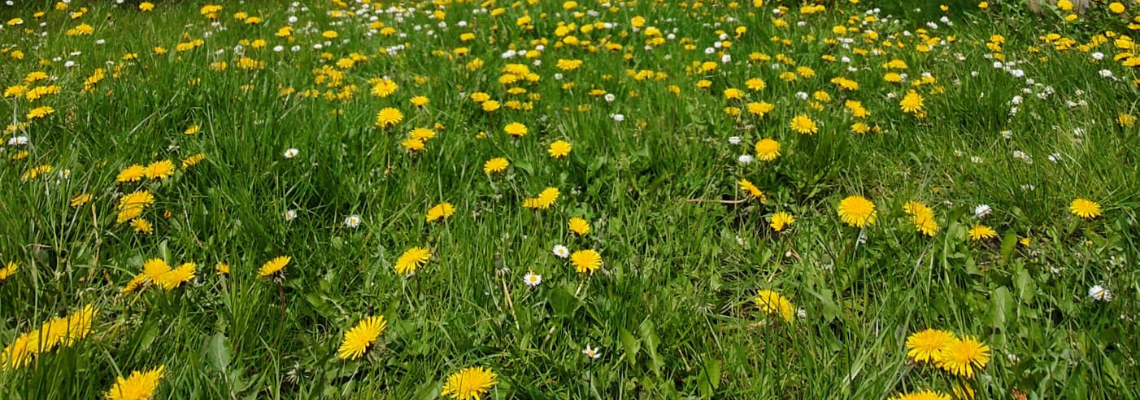
Spring action month – Thank you
This week our second annual Spring Action Month came to a close. Thank you for taking part in various Spring Actions all over the world. During the month we received donations, welcomed new members and new supporters to our cause. Here are some particular highlights for me:
Spring Runners and riders
Alice Morley got Spring Action Month off to a flyer by running a 10k, raising nearly £400 for Population Matters. We hope you too will consider following Alice’s lead by setting up your own fundraising challenge.
Additionally, supporters have kindly donated by downloading our Pop a Bun in the Oven recipe cards. Supporter Braith donated £200 this Spring Action Month raising funds year-round through sales of his cleaning products and greetings cards. Thank you!
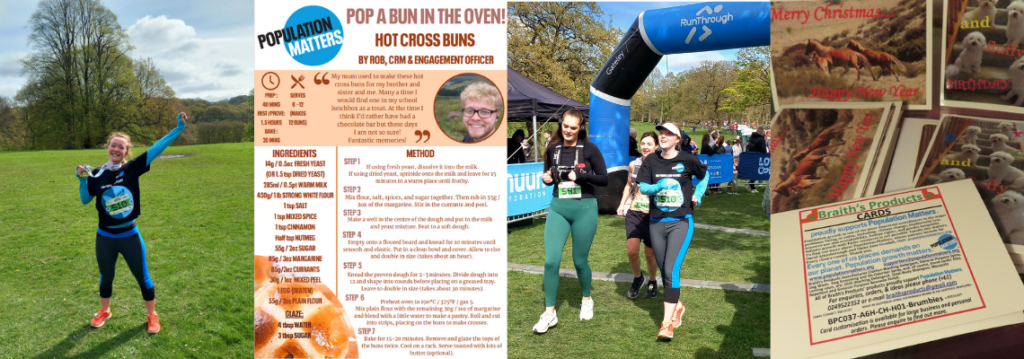
You have been in contact from Australia, Africa, Europe, and North America – sharing steps you take locally to support biodiversity.
An african perspective
Patrick runs an organisation in Kenya which supports agriculture and works with rather than against nature. Patrick’s projects include intercropping of different crop species to manage pests rather than using pesticides. In a project in Kirinyaga County, coffee and macadamia nuts are grown as cash crops together in the same plantings where coffee pests are repelled by the presence of macadamia and vice versa. The crops are fertilised by natural rabbit and chicken manure too.
The coffee/macadamia nuts as well as coffee/pawpaw intercrops are also perfect combinations to manage pests. The common pests in coffee, especially antestia bugs, would not go to a farm with macadamia nuts trees because macadamia releases an odour that is not pleasant to them. At the same time, the red spider mites and thrips will go away from coffee trees close to macadamia nuts trees. Thus, these farmers will use less or no organic chemicals at all. This will keep bees attracted to macadamia tree and coffee flowers. This helps in pollinating macadamia and coffee thus producing the best coffee berries and the best macadamia nuts for the market.”
Patrick Muriuki, Kenya
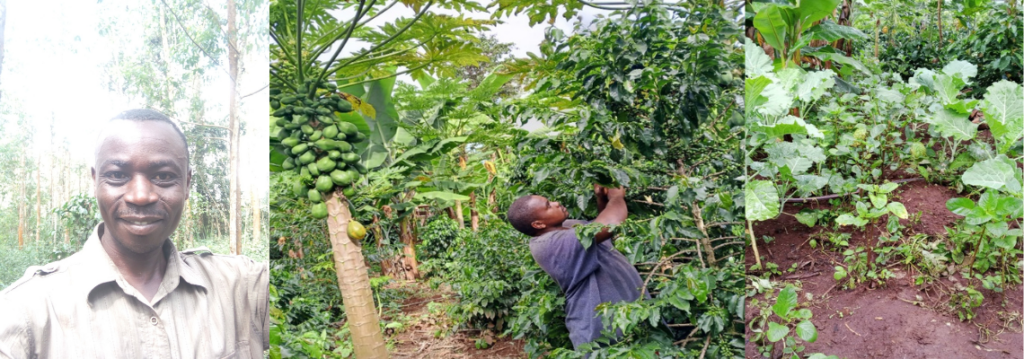
John in Uganda has likewise been busy planting this spring:
I plant the local tree species that are soon to face extinction, such as Croton, Prunus Africana, and others. The efforts I have put in place promote environmental conservation and control of global warming.“
John Sunday, Uganda
views from Down under (aka ‘autumn action month’)
Australian biodiversity and wildlife care were brought to us by two separate supporters not known to each other but whose experiences perfectly highlight both the damage caused by human encroachment and also opportunities to repair such damage:
Chris’s property in New South Wales borders a bushland reserve with all kinds of wildlife:
There are many kangaroos, some wallabies, wombats, greater gliders, bats, possums and even one koala but there are constant battles to stop the land being misused by residents and the native animals hurt. There are houses bordering the reserve and where there are houses, there are roads, so roadkill of the wildlife is a massive issue here . . . as the towns around us have increased the wildlife is trapped on small islands like the reserve and this causes problems of inbreeding. The classic story of the humans pushing out the wildlife.”
Christine Goodwin, Australia
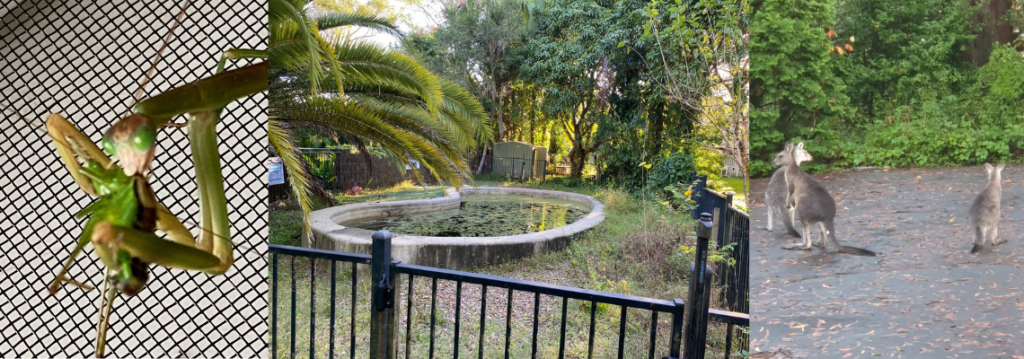
Will, also in New South Wales, is actively rewilding areas after humans have left:
We are trying to save a pond (an old swimming pool). There are some issues with the council – once a house goes, outbuildings and pools are supposed to go too. In all, five hundred houses are going so it’s a good opportunity for the wildlife to recover after two hundred years of settlement.”
Will Goode, Australia
#NoMowMay back in the UK
Closer to home here in the UK, I once again completed #NoMowMay and left the lawn to grow. It is now, near the end of May, beginning to look a little messy and ready for a cut, but the process has been very enjoyable. First, we saw bright, sunny dandelions and daisies – these attracted bees and other pollinators – then the dandelions turned to flock, and now the tall buttercups and ladybirds are in ascendency. It will be a shame to cut the grass and return to lawn and I will heed the advice of our Facebook follower David Keeble who suggests partially mowing to create ‘desire lines’ and leaving some areas unmown all summer to allow habitats to develop further. Thanks, David!
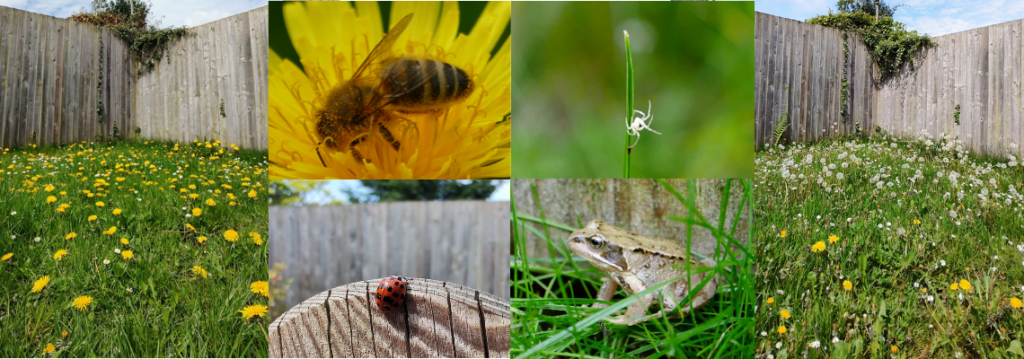
a global perspective:
Of course, our core focus remains the unsustainable levels of our ever-increasing human population. However, it is equally obvious that to be most effective, those of us already here need to take sensible steps to reduce consumption and help the environment – as the human population increases, so does the overconsumption and encroachment into nature. This was effectively highlighted this month when I was contacted by Isaac from Tanzania who, while excited to take part in #NoMowMay at home, brought to my attention his organisation’s work providing basic healthcare, mental health services, sexual and gender equality in education, and distributing basic sanitary kits in his local area. Isaac illustrates:
The distribution of sanitary kits has not only helped school girls stay in class during menstruation and pursue their dreams, but also has kept the environment clean and preserved biodiversity because of reduced landfills of disposable pads”
Isaac Chengula, Tanzania
Some final spring action month 2024 outcomes:
I’ll leave you with this poem shared with us by Population Matters supporter Caitlin Rowen from Wales. AKA Wildflowers Poetry, Caitlin contacted me right at the start of Spring Action Month with a climate change and biodiversity poem which we shared on social media. If you missed it the first time around, please check out Caitlin’s poem ‘Change’. Caitlin has also distributed wildflower seeds in local urban areas to help biodiversity this Spring Action Month.
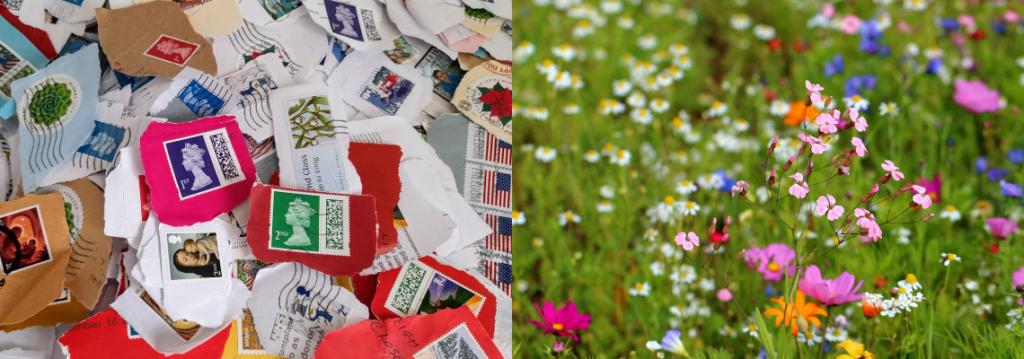
I’d like to close by sending my sincere thanks to Patrick, John, Chris, Will, David, Isaac, Caitlin, and all our supporters who have taken positive Spring Actions for biodiversity this spring. As part of the fundraising team, my special thanks also to Alice, Braith, Shamin, and all of you who have fundraised over the last five weeks. If you have anything you’d like to share with us, especially if you are interested in fundraising for us this summer and later in the year, I’d love to hear from you. My email address is anthony.howarth@populationmatters.org and my direct telephone is 020 4552 5142. Please do get in touch.
Wishing you all the very best for the rest of spring,

